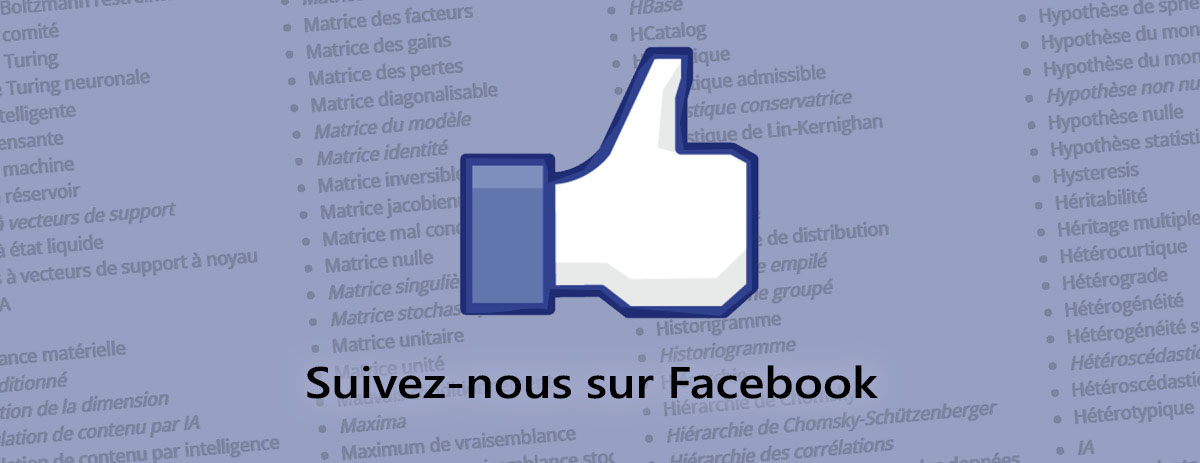« Détection de nouveauté » : différence entre les versions
Aucun résumé des modifications |
Aucun résumé des modifications |
||
| Ligne 1 : | Ligne 1 : | ||
== Définition == | == Définition == | ||
As the name implies, novelty detection is the identification of novel, or unusual, data from within a dataset. Often, these outliers, also called anomalies, are discovered due to their differences from the rest of the data. Sometimes, however, novelty detection algorithms need to be tuned to look for not just single incidents of unusual data, but rather groups or bursts of unusual information. This alternative is called cluster analysis and is a common technique in bank fraud algorithms to track patterns of suspicious activity. | |||
== Français == | == Français == | ||
''' détection | ''' détection de nouveauté''' <small> [terme proposé par Datafranca] </small> | ||
== Anglais == | == Anglais == | ||
| Ligne 10 : | Ligne 10 : | ||
<small> | <small> | ||
Version du 27 janvier 2021 à 16:49
Définition
As the name implies, novelty detection is the identification of novel, or unusual, data from within a dataset. Often, these outliers, also called anomalies, are discovered due to their differences from the rest of the data. Sometimes, however, novelty detection algorithms need to be tuned to look for not just single incidents of unusual data, but rather groups or bursts of unusual information. This alternative is called cluster analysis and is a common technique in bank fraud algorithms to track patterns of suspicious activity.
Français
détection de nouveauté [terme proposé par Datafranca]
Anglais
novelty detection

Contributeurs: Imane Meziani, Isaline Hodecent, wiki






